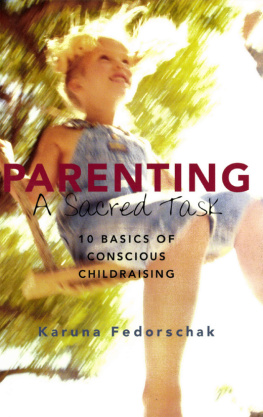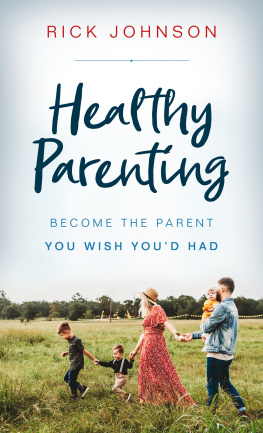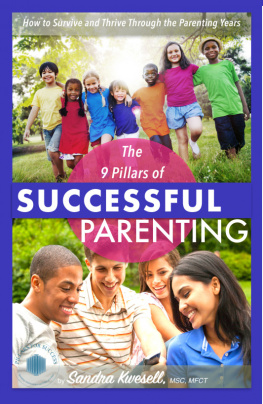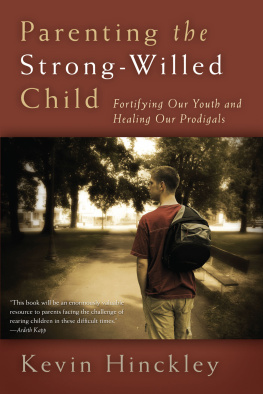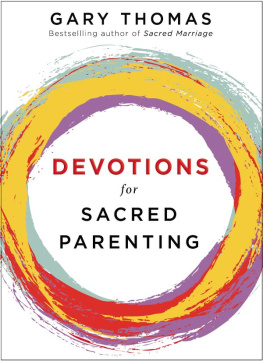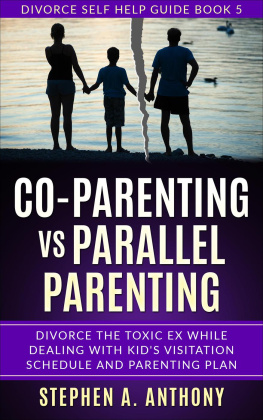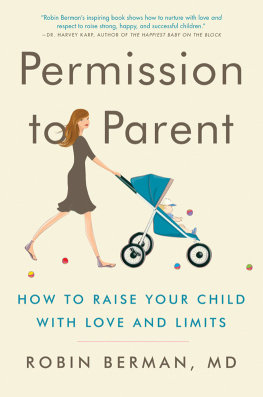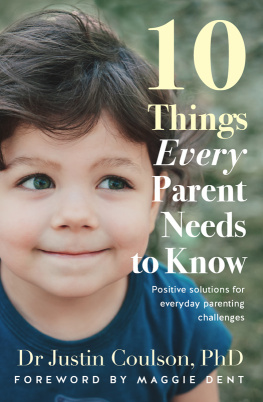AFTERWORD
In parenting, as in most endeavors, we will likely find that we are both good and bad at the job. Through the process of parenting our children, we generally win some measure of relief from the mistaken idea that we ought to be perfect. However, we all do have shortcomings, and unless we face and work with them, theyll run the show. If we dont acknowledge an aspect of ourselves that wed rather not see, it has our blind spot to range freely within. Each of us faces this dilemma in ourselves.
The conscious parent has the powerful and potentially transformative tool of parenting-as-practice in her repertoire. The recipe for parenting-as-practice is equal parts contemplation and effort. Contemplation is whatever allows us to take stock of our life, mentally, physically and bodily. Contemplation traditionally takes the form of prayer and meditation. Effort is what is required to break through our unconsciouness in order to make positive change. Life is the arena of our efforting. We may study, exercise, or engage spiritual psychotherapy as part of our effort. Contemplation and effort are intertwined, inseparable. We cant have one without the other if we are looking to acquire a whole new outlook.
The demand, discomfort, and joy of childraising is for the benefit of our children true but its for us too. We hope to give our children the opportunity for a start in life that we may not have had. They offer us the opportunity to complete our own growth and maturation. Although it may look like we are doing all the giving and making all the sacrifices, in the end, we are the benefactors of what we build in ourselves by reaching beyond our limits to love them. Thats the sacred task of parenting.
Love
The 1st Basic
Taking It
Children love us without reserve. That kind of love can be as hard to take as the discomfort, noise, and general confusion these active, inquisitive, growing little beings bring into our lives as well. Their unqualified love is as much in our faces as their innocent expectation that we will love them as fully in return.
The love of a child can be hard to receive when as adults we operate on the psychological belief that we are unlovable. A child is a twenty-four-hour-a-day broadcast that our belief is in error. And yet amazingly, tragically, we can enroll our children in the same belief in scarcity of love by persisting in it ourselves for long enough. Blessed indeed is the child who has a parent willing and able to surrender their unlove and relearn a new way of living in apprenticeship to their child. Blessed indeed is the child (and the parent) who has a tribe a wise extended family or spiritual community to hold and nurture them, and whose various members can fill in the pieces that the parents are missing and are thus unable to provide for their child themselves.
Having a child or children in our lives is a call to do the joyous, backbreaking, heart-opening, painful job of becoming whole again, in the role of parent, in order to meet that child in his or her natural wholeness. Taking the love of our children means accepting that we are lovable. In order to do that we must give up our self-hatred and negativity. There is no formula, no hard and fast rule, and no easy how-to for the sacred task of parenting. Sometimes groping painfully along, other times soaring majestically, nonetheless we get up every morning and begin again whether today brings the groping, the soaring, or more likely both!
Giving It
Holding our newly born child in our arms it is all so simple. We have only to love this little being and nothing more or less is required. After those first moments, the picture tends to become less clear. When our baby is tiny, we may worry about nursing and weight-gain, colic and jaundice. A newborn is so incredibly vulnerable. Therein lies the wonder and the terror of parenting an infant. So it goes as they grow. Each stage brings new joys, new worries. And that simple truth that was so evident when we first laid eyes on them can become buried in the details of life. When our willful toddler throws his first temper tantrum, or our pre-teen mouths off at us, it is much more difficult to remember the bottom line: They want to know we love them. We are called upon to show up with the correct expression of that love in any given circumstance. When all else fails, and its bound to, it never hurts to take them in our arms, if theyll let us, and tell them we love them. If we can do that, get to that place where its possible to offer our love and for our child to receive it, it will be like weve pushed the reset button a button that is likely to need pushing more than once. Being a parent is intensive, demanding work.
Several days after the birth of my first child, he began to show signs of jaundice. His skin and the whites of his eyes were yellowish. He was lethargic, sleeping a lot and not waking up to nurse. My husband and I took him to the lab for a blood test and discovered he would need to be hospitalized immediately.
For the next three days we camped out in the intensive care unit at the local hospital. I took the day shift with a loyal woman friend for support; my husband took the nights with my friends husband for company. I was exhausted from the birth, overwhelmed with my new responsibility and fearful for my babys health. I wandered back and forth between the family room attached to Intensive Care and the bathroom down the hall. My days and nights were punctuated with the dutiful periodic pumping of milk from my overfull breasts to insure I didnt lose the capacity to nurse. I was in a delirium of fatigue and anxiety, feeling as vulnerable as my newborn under the bili lights in his clear plastic crib in the ICU. I loved him so desperately that I couldnt bear to think about what I would do if I lost him.
On the third day my husband and I were notified that our sons liver was fully functioning and he was cleared to leave the hospital with us. Relieved and elated, we returned home after this unexpected crisis to resume our new-baby routine of nursing and napping and loving this new little life that was now and forever bound up with ours. My husband and I had both had our eyes opened about just how real this could get, and all this in the space of one week from our babys homebirth to his release from the hospital following jaundice. It was evident that our concepts about giving love had been redefined by our nearness to the mysteries of life and death. We had come light years in the blink of an eye. Yes, we were going to have to grow up; there was no doubt about it. And we couldnt have been given a better impetus to do so than this child. To grow our son outside the womb, we were going to have to nourish in ourselves the qualities of kindness, patience, courage, gratitude, and more in short, all the facets of love.
Mother Love
A woman grows her child within her womb and usually assumes the greater share of the burden of raising the child. Mother is a childs first and most significant role model in life. The expectation of acceptance and love from mother is the blueprint every child is born with. Love and acceptance are either communicated or not in every single interaction a mother has with her child from birth on. While that might sound like an impossible standard, it is simply a statement of fact.
If this expectation has generally been honored, any breach of it will be met with loud and long protest from a child until the flow of love and acceptance is restored. Love and acceptance create a mood in which the child is subtly cradled. Both inform a mothers every action the way that she touches her child, the sound of her voice, her very breathing. The infant is entirely one with his mother and thus has no defense against anything he perceives that is other than love and acceptance.

